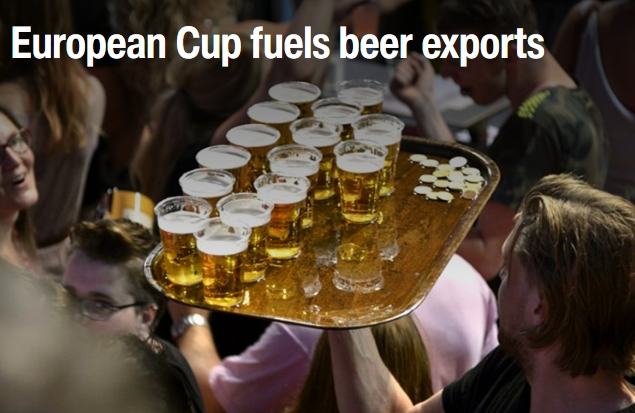The European Cup has not only captivated soccer fans but also significantly boosted the “Summer Night Economy,” with beverages, especially beer, witnessing a surge in popularity. This excitement has led to a substantial increase in beer orders from overseas markets.
According to statistics from Shenzhen Customs, the city exported beer worth 102 million yuan (US$14.03 million) from January to May this year, with over 20 million yuan in exports in May alone.
Recently, a shipment of canned beer was exported to Vietnam, supplying overseas markets with a refreshing beverage for the summer soccer season.
“The monthlong European Cup will last until July 14, and the Paris Olympics will follow at the end of July. During this summer period, beer exports are experiencing rapid growth. Our orders in May and June increased by 20% compared with the same period last year,” said Jiang Shengyu, the customs business manager at Shenzhen Tsingtao Beer Asahi Co.
Shenzhen Haiguo Craft Beer Co., a newly registered beer company in Shenzhen, targets markets in Hong Kong and Singapore. The company often faces challenges in navigating the different regulations and standards for imported beer in each country. However, with professional guidance from customs authorities, Shenzhen Haiguo has been able to resolve export compliance issues, according to an executive from the company.
Yao Bing, section chief of Tongle Customs, said that customs authorities provide exporters with business and compliance guidance to improve their quality management systems and enhance competitiveness.
On Monday, an SF Airlines-operated B757-200 all-cargo plane took off from Shenzhen Bao’an International Airport heading to Ho Chi Minh City, Vietnam, marking the official start of the Shenzhen-Ho Chi Minh international freight route.
The Shenzhen-Ho Chi Minh route operates five flights per week, facilitating the transportation of almost 280 tons of air cargo per round trip between the two cities. Export goods mainly include parcels, e-commerce goods, and electronic products, while imports primarily consist of fresh agricultural and aquatic products.

